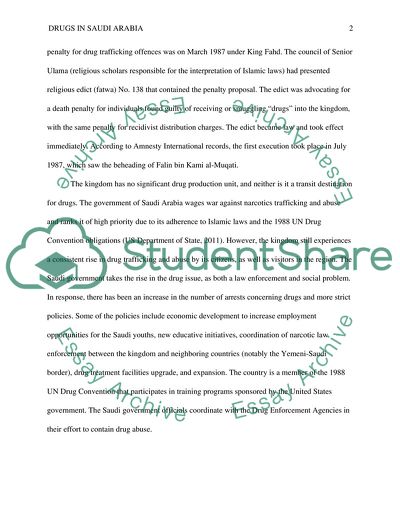Cite this document
(“Drugs in Saudi Arabia Research Paper Example | Topics and Well Written Essays - 2250 words”, n.d.)
Retrieved from https://studentshare.org/politics/1585837-drugs-in-saudi-arabia
Retrieved from https://studentshare.org/politics/1585837-drugs-in-saudi-arabia
(Drugs in Saudi Arabia Research Paper Example | Topics and Well Written Essays - 2250 Words)
https://studentshare.org/politics/1585837-drugs-in-saudi-arabia.
https://studentshare.org/politics/1585837-drugs-in-saudi-arabia.
“Drugs in Saudi Arabia Research Paper Example | Topics and Well Written Essays - 2250 Words”, n.d. https://studentshare.org/politics/1585837-drugs-in-saudi-arabia.


